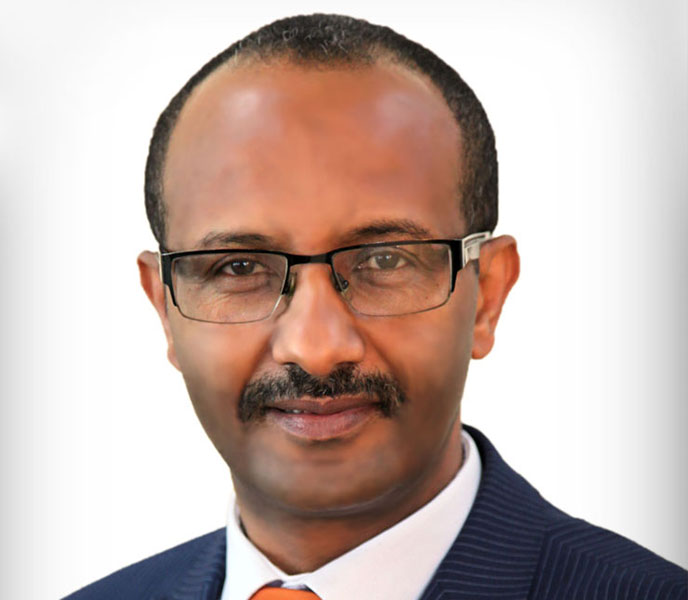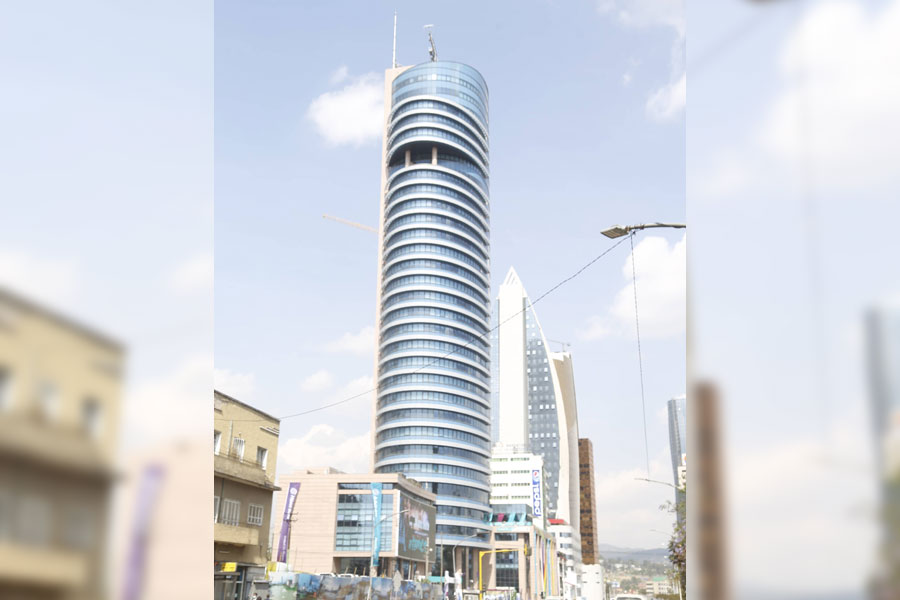
Radar | Oct 06,2024
Berhan Bank, one of the mid-sized banks, registered noteworthy profit growth in the past fiscal year, ended July 7, 2020. Its net profit recorded a 25pc jump to 551.6 million Br.
Parallel to the profit growth, Berhan's earnings per share (EPS) also rose by five percent to 25.9 Br.
The growth of profit and EPS at Berhan is remarkable, according to Abdulmenan Mohammed, accounts manager at the London-based Portobello Group.
Berhan's growth was driven by a surge in income from financial and non-financial intermediations. It generated 2.1 billion Br in income from interest on loans, advances and National Bank of Ethiopia (NBE) bonds, a growth of 34.5pc. Revenues from service charges and commissions also grew by 12.3pc to reach 618.8 million Br. Foreign exchange earnings also showed a marked rise of 62.2pc to 132.2 million Br.
The growth of income, particularly from foreign exchange dealings, in an economic environment where many banks were hit by a serious reduction of income in this business area is impressive, remarked Abdulmenan.
"Our Bank mobilised 155.7 million dollars despite a decline in remittances from abroad due to the lockdowns around the world," said Abraham Alero, president of Berhan.
The overall foreign currency earnings of the Bank has dropped by four percent from the previous year, according to Abraham, who adds that the first three quarters kept the Bank from further decline.
Gumachew Kussie, the board chairperson of Berhan, stated that the Bank could sustain the positive growth despite the fiscal year's challenges.
Deposit mobilisation was one of the toughest challenges in the industry following the overall liquidity crunch that affected the banking industry in an uncommon and unprecedented manner, according to him.
“The industry was also a victim of the Novel Coronavirus (COVID-19) pandemic, which demanded changes [in everything] from daily operations to rescheduling of loans and interest rate adjustments,” commented Gumachew.
Interest expenses climbed by 32pc to 817.8 million Br, while salaries and benefits also shot up by 25.3pc, hitting 780.9 million Br. Other operating expenses have also shown a 12.7pc increase, exceeding 326.8 million Br.
During the past fiscal year, the Bank has opened 31 new branches, pushing its total branch network to 231. It also recruited 847 new employees during the year, bringing the total number of staff to 4,572.
Berhan’s assets expanded by 11.4pc to 21.4 billion Br.
This is a modest expansion in terms of the banking industry, according to Abdulmenan.
Abraham argues the Bank's asset expansion growth rate was strong. However, he adds that the management will be focused on further strengthening the rate in the coming years.
Over 12.7 billion Br in loans and advances were disbursed by Berhan during the reporting period, marking a 25.5pc increase. The Bank mobilised 15pc more deposits in the last fiscal year, reaching 16.6 billion Br. The increment pushed the Bank’s loan-to-deposit ratio up to 69.2pc, about two percentage points higher than the previous year.
The loan-to-deposit ratio of Berhan is reasonable, according to Abdulmenan.
Berhan’s investment in NBE bonds dropped by 12.4pc to reach 3.8 billion Br, representing 18pc of the total assets and 21.1pc of the total liabilities of the Bank.
Every bank's investments in NBE bills dropped last year following the central bank's move to repeal the mandatory bond that required commercial banks to surrender 27pc of their gross loans and advances in exchange for the bonds. With a maturity period of five years and a five percent interest rate, the bonds were redirected to the Development Bank of Ethiopia (DBE), which finances priority areas selected by the government.
Berhan’s liquidity level has shown a reduction both in value and relative terms. Its cash and bank balances went down by 8.5pc to 2.8 billion Br. The ratio of liquid assets to total assets declined by three percentage points to 13.1pc, and liquid assets to total liabilities decreased by 3.1 percentage points to 15.6pc.
The Bank’s paid-up capital increased by 22.5pc to reach just under 2.5 billion Br. Its capital adequacy ratio (CAR) stood at 16.7pc, twice the minimum threshold.
Negalign Nigatu, a new shareholder at Berhan, claimed that he expected higher returns last year based on the information he was provided by other shareholders about the previous years' performances.
"However, I’m not disappointed with the performance since the Bank is investing the money in areas that can bear income in the future," he said.
He joined the Bank last year by buying 30,000 Br worth of shares, which were returned from former shareholders. Negalign decided to reinvest the money he gets from the dividends into new shares.
“The Bank has a positive future,” he said. “I also plan to buy more shares in the future.”
PUBLISHED ON
[ VOL
, NO
]

Radar | Oct 06,2024

Radar | Oct 18,2025

Radar | Nov 20,2023

Radar | Oct 19,2019

My Opinion | Jul 30,2022

Fortune News | Feb 05,2022

Fortune News | Feb 15,2020

Radar | Apr 01,2024

Agenda | Jan 15,2022

Radar | Feb 26,2022

Dec 22 , 2024 . By TIZITA SHEWAFERAW
Charged with transforming colossal state-owned enterprises into modern and competitiv...

Aug 18 , 2024 . By AKSAH ITALO
Although predictable Yonas Zerihun's job in the ride-hailing service is not immune to...

Jul 28 , 2024 . By TIZITA SHEWAFERAW
Unhabitual, perhaps too many, Samuel Gebreyohannes, 38, used to occasionally enjoy a couple of beers at breakfast. However, he recently swit...

Jul 13 , 2024 . By AKSAH ITALO
Investors who rely on tractors, trucks, and field vehicles for commuting, transporting commodities, and f...

Oct 25 , 2025
The regulatory machinery is on overdrive. In only two years, no fewer than 35 new pro...

Oct 18 , 2025
The political establishment, notably the ruling party and its top brass, has become p...

Oct 11 , 2025
Ladislas Farago, a roving Associated Press (AP) correspondent, arrived in Ethiopia in...

Oct 4 , 2025
Eyob Tekalegn (PhD) had been in the Governor's chair for only weeks when, on Septembe...